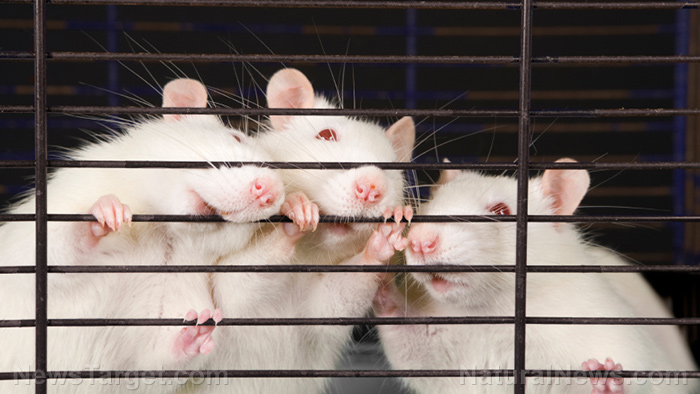Compounds in green tea show promise in treating Down’s syndrome; may even help prevent facial features associated with the disorder
05/11/2018 / By Janine Acero

Among the myriad of health benefits of green tea, studies suggest that green tea supplements may help treat Down’s syndrome in babies, and may even prevent the development of the classic facial features associated with the disorder.
The researchers turned to the green tea compound epigallocatechin gallate (EGCG) to inhibit the enzyme DYRK1A, which is the gene associated with Down’s syndrome.
The study, published in The Lancet Neurology, involved 84 young adults with Down’s syndrome who were divided into two groups: The first group was given a decaffeinated green tea supplement containing 45 percent EGCG, and a weekly online cognitive training; the second group was given a placebo supplement and had the same training. The subjects then took cognitive tests after three, six, and 12 months.
After the trials, the scientists found that the green tea group scored significantly better than the placebo group in the ability to remember patterns, verbal recall and adaptive behavior. Moreover, they improved over time.
Brain scans revealed that EGCG altered the way neurons in the brain connect with one another.
“This is the first time that a treatment has shown efficacy in the cognitive improvement of persons with this syndrome,” said Mara Dierssen, senior author of the study and a researcher at the Centre for Genomic Regulation in Barcelona. However, she added that it should not be quickly interpreted as a “cure” for Down’s syndrome. Still, the findings may help improve the individual’s overall quality of life.
Green tea may also positively affect development
In a separate study, scientists gave green tea supplement to seven kids before the age of three with Down’s syndrome. Results showed that six out of seven of the participants developed facial features that closely resemble their healthy peers.
The researchers believe this effect is due to EGCG inhibiting DYRK1A, which may be responsible for the typical facial dimensions of people with Down’s syndrome, such as a short neck, flattened face, upward slanting eyes and a small mouth.
The research team hopes that “normalizing” the facial features associated with the disorder may help minimize the stigma that individuals experience.
While some families may be keen to try anything that might make things easier socially and cognitively, others feel strongly against changing their child’s appearance or personality, i.e. not wanting to change the person they are.
Previous research suggests giving pediatric Down’s syndrome patients ECGC boosts their memory and reasoning skills as well.
Fast facts about Down’s syndrome
Down’s syndrome, also known as trisomy 21, is a genetic condition caused by the presence of an extra, or third, copy of chromosome number 21. Humans normally have 23 pairs of chromosomes, which contain up to 25,000 protein-coding genes. In Down’s syndrome, the extra copy causes some of the genes in chromosome 21 to be “over-expressed,” which affects the growth of the brain and skeleton. This can lead to learning disability and other cognitive issues, and physical characteristics such as short stature and facial differences.
Down’s syndrome is the most common genetic form of intellectual disability, and afflicts approximately one in 1,000 people, as per the World Health Organisation. (Related: High pesticide exposure in pregnant women found to cause birth defects and low birth weight.)
Symptoms of Down’s syndrome include:
- Floppiness at birth
- Eyes that slant down and out
- A small mouth
- A flat back of head
Visit NaturalCures.news to learn more about other natural remedies to various health conditions.
Sources include:
Tagged Under: alternative medicine, alternative treatment, antioxidants, children's health, disease prevention, Down's syndrome, DYRK1A gene, epigallocatechin gallate compound, facial features, Green tea, green tea supplement, mind body science, natural cures, natural medicine treatment, natural remedy, natural treatment, treating Down's syndrome, trisomy 21


















